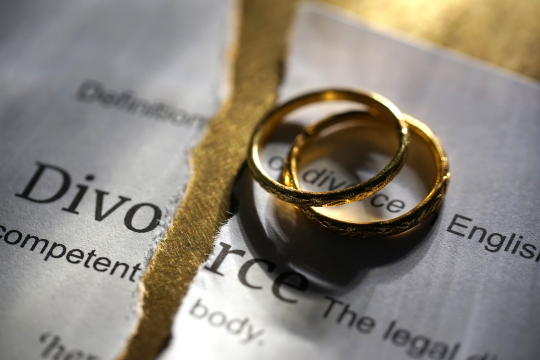Good Divorce Week 2025 – There is Another W...
Unmarried Couples Legal Rights Solicitor.
Unmarried Couples Rights are vastly different from those regulating marriages.
In England and Wales, and under the eyes of the law, the term cohabitation is applied to couples who share a home but remain unmarried.
Many of those who choose to live together before getting married, or with no intention of ever getting married, do so in the belief that Unmarried Couples Rights are the same as those of a married couple. This belief is false. There is no concept of a “common law” spouse in English law, and there is a lack of legal protection in the event of separation.
When a married couple gets divorced, English law takes the starting point that there will be an equal distribution of assets, unless there is strong evidence to the contrary. When an unmarried couple separates, the basic assumption is the opposite: anything owned by you is yours and anything owned by your partner is theirs. This also applies to gifts made to one of the parties and any money in a bank account in a sole name. Property purchased jointly is held in proportion to who contributed to the purchase price and is distributed accordingly.
This assumption can be overturned, but evidence of an intention to distribute properties differently will need to be clear; the process of proving such an intention, in the absence of written evidence, can be difficult.
The lack of definitive legal provision for unmarried couples means that disputes in this area are often complex and outcomes can be uncertain. For this reason, it is better to clearly set out the basis on which assets are owned, and how they should be distributed on separation, from the outset. There are different ways to achieve this, but a cohabitation agreement setting out each person’s rights and obligations is often the best option.
If a written agreement is in place, resolving issues on the separation of an unmarried couple is relatively simple. Where no such agreement exists, disputes will often be settled based on the ownership of property, regardless of the previously stated intentions of the parties. This often leaves one person feeling unfairly treated.
Contact Lanyon Bowdler’s team of expert family law solicitors for legal advice specific to Unmarried Couples Rights and cohabiting couples property ownership disputes.
Our Unmarried Couples Rights Expertise
We are renowned for our passion and commitment to customer service. Recognised in The Legal 500 as a “brilliant firm that competes with the very best of family law teams in the UK”, we work hard to fully understand your individual circumstances and will be by your side throughout what can be an emotional and distressing time.
Our advice would always be to think about how you intend your property to be dealt with if you separate, and clearly express this intention in writing. Our team of Unmarried Couples Rights solicitors has drafted a wide variety of cohabitation and other agreements for unmarried partners, setting out exactly how their property should be distributed, which avoids complex and expensive proceedings later.
Where this is not the case, we have vast experience with Unmarried Couples Rights, and support unmarried cohabitants across the full range of situations which can occur on separation, such as:
- Claims for an interest in property owned solely by the other separating partner
- Disputes where one partner refuses to sell a jointly held asset
- Claims to a share in gifts
- Distribution of business assets
Whatever your circumstances, we provide the clear, proactive, and practical advice you need regarding Unmarried Couples Rights.
As an indication of our commitment to understanding clients in specific circumstances, we signed the Armed Forces Covenant and are members of the NFU’s legal panel.
Your Unmarried Couples Rights questions answered
The best way to protect your rights to an asset is to formally agree what those rights are from the outset. These conversations can be difficult, but they are much less difficult, and expensive, than a legal dispute following separation.
There are different ways to protect your interests:
- Cohabitation agreement – a legally binding contract which sets out the terms on which property is held and how it should be distributed on separation. The scope of a cohabitation agreement can vary from the distribution of all the assets held in the relationship, or simply what should happen on the sale of a single property.
- Declaration of trust – a similar document to a cohabitation agreement but relating to a specific piece of property. A declaration can be entered into at the time the property is acquired, or at any point afterwards. They are often used where a couple purchase an expensive, one-off item, usually a home or rental/holiday property, or where one partner in a relationship wants to ensure their partner has no claim over an item of particular importance to them.
For an agreement to be enforceable, it needs to have been freely entered into with the intention it should bind both parties. The best way to ensure this is to get independent legal advice.
If it can be shown the agreement is invalid, there has been a variation to the terms of the agreement, or one party was somehow tricked into signing the agreement (through fraud, misrepresentation, or undue influence), it is possible for a court to disregard the terms of the agreement.
If you believe an irretrievable relationship breakdown has taken place, you should act immediately. Any joint banking accounts you hold should be frozen, to avoid your partner moving funds into an account in their own name. You can do this by contacting your bank. If you freeze your joint account, ensure any bills continue to be paid.
It is also important to contact a legal expert to plan your strategy regarding separation from your unmarried partner.
The welfare of any children of a relationship is the primary concern of the court. Ideally, the separating couple will agree on the basis on which any children will live with each partner and the contact arrangements each partner will have. If an agreement is impossible, an application for a Child Arrangements Order can be made. You may, sometimes, be ordered how any children should be financially supported if an agreement cannot be reached but usually this is dealt with through the Child Maintenance Service.
The concept of a “common law marriage” ceased to exist as a legal term in 1753, and the law has not since developed any comprehensive process for dividing the assets in the context of unmarried couples’ property rights, in the way it has for married spouses on divorce. In the absence of any prior agreement, each disputed asset is considered separately under the relevant property or trust law.
The court will take no account of the length of time an unmarried couple have lived together or whether one party has contributed to the relationship by bringing up children or running the home. Clear evidence that ownership of assets was intended to be shared will need to be presented.
Tenancy agreements can be made jointly either as joint tenants (where the parties hold equal shares in the whole) or tenants in common (where the parties hold specific shares of the property, which can be equal, but does not have to be). Where property is held as tenants in common, the respective shares of the property are usually clearly specified, and the situation is straightforward.
If you purchased a property as joint tenants, the legal presumption is that each of you is entitled to an equal share. This presumption exists even if the contributions made to the purchase price, or to the ongoing costs of maintaining or improving the property, were unequal.
To rebut this presumption, a clear intention as to each partner’s share in the property must be proven, or evidence of duress, undue influence or mistake must be presented to the court. This is hard to prove, and it is rare for such a claim to succeed.
It is possible to sever a joint tenancy and so convert it to a tenancy in common in equal shares. This can be advisable if a co-owner (“A”) no longer wishes his or her share of the property to pass automatically to the surviving co-owner (“B”) if “A” predeceases “B”. Please ask to speak to one of our experts if you wish to discuss this issue further.
Whatever basis the property is held on, disputes can arise when one party refuses to leave the property or agree to a sale. We can provide advice on how to seek an order for sale without the consent of your former partner or on buying out your former partner’s interest.
The court can order a sale if:
- It is satisfied that would align with the intentions of the parties when they purchased the property
- That sale aligned with the purposes for which the property is held
- The welfare of any minor who reasonably expects to live in the property as their home is secured
- The sale doesn’t prejudice the rights of any secured creditor or other beneficiary
Whether you are living in the property does not determine your rights to a share of that property. Your interest will remain if you move out but remember you remain jointly liable for the mortgage and any other bills if they are in your joint names.
Lanyon Bowdler’s team of family law solicitors has extensive knowledge and experience in resolving cohabiting couples property disputes. Having handled many such cases, we can help you refine a separation agreement for cohabiting couples that represents the best outcome for you.
You will need to prove both parties intended you would have an interest in the property when it was purchased (or when you moved in) and you acted to your detriment in reliance upon that agreed intention, by contributing financially or sacrificing an opportunity.
If you cannot evidence any explicitly stated intention that ownership of the property should be shared, it is still possible for the court to infer such an intention based on the actions of the parties, such as contributing to the purchase price, or paying some or all the mortgage. It is impossible to infer an intention to share ownership without these actions, but these actions are not sufficient in themselves.
It is important to note that simply paying for improvements to a property, without any evidence of an express agreement that doing so would result in an interest in the property, would not normally result in the court ruling that such an interest had been created. A claim to have any money spent repaid could be made, on the basis that the money was in fact a loan.
If it is not possible to come to an agreement with your former partner, you need to apply for a declaration of the beneficial interest of the assets. The court may make an order simply declaring the interests each person has in the assets, or it may order the assets be sold, or that one party should compensate the other for the loss of their beneficial interest in the assets.
What our clients say.
Am I Entitled to a Bigger Share of the Property?
If your partner moved out of your house, and you have been paying the mortgage, you would not be entitled to a bigger share of the property in these circumstances. However, the court can order you to be compensated for some of the money you have spent since your separation, based on the principle of “equitable accounting”. This means that they will consider:
- Giving credit for reducing the balance of the mortgage
- Giving credit for payments of mortgage interest
- Giving credit for the cost of repairs or improvements
- Charging occupation rent to a partner refusing to leave a property after separation
Contact us
Please give us a call for a friendly, confidential, chat about how we can help support you when you or your family need legal advice and representation. Please contact a member of the team or complete our online enquiry form.
By choosing Lanyon Bowdler for unmarried couples’ legal advice, you can rest assured that you have the best legal expertise on hand no matter what the situation. We are committed to providing exceptional levels of client care and will work closely and considerately with you to help find the best outcomes. Our Family Law Solicitors team has great experience in all areas of family law and family mediation.
We have offices in Shrewsbury, Bromyard, Conwy, Hereford, Ludlow, Oswestry and Telford, so are able to act for clients all over Shropshire, Herefordshire, Mid and North Wales and across the Midlands (including Wolverhampton & Birmingham). As a leading full-service law firm, we can represent you wherever you live in England or Wales.
Meet the team.
Latest knowledge.
Our awards and accolades.
Get in touch.
"*" indicates required fields

 Back
Back
























 Blog
Blog




 Podcast
Podcast















